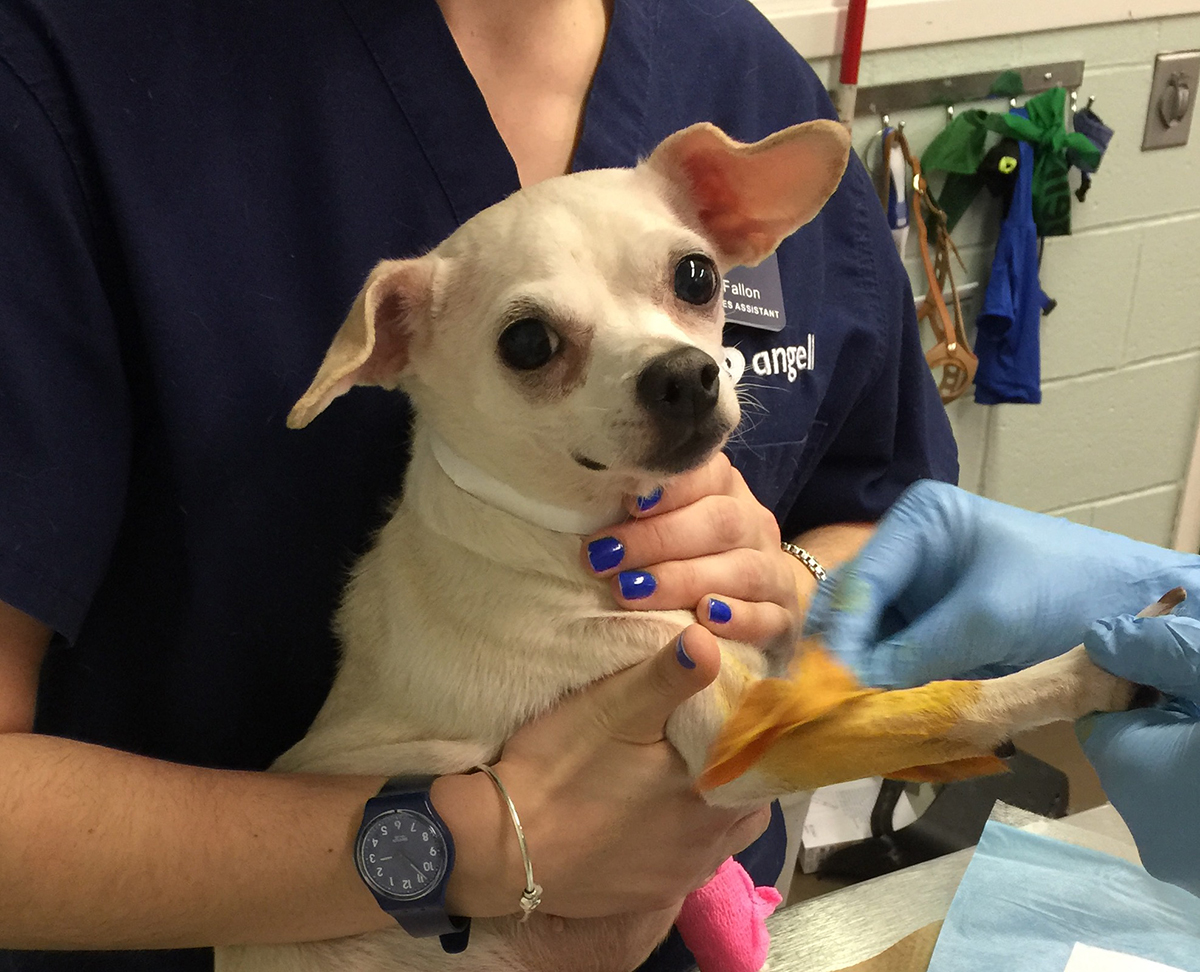Raw Food Diets Pose a Health Risk to Pets

A dog in treatment at Angell. Photo provided to bostonmagazine.com
For humans, raw food is the diet du jour. For pets, it’s a major health risk—and one growing more common.
Virginia Sinnott, an emergency care veterinarian at Angell Animal Medical Center, says the trendiness of all-natural eating has inspired some pet owners to turn, mistakenly, to raw meat as an alternative to processed dog food. While their thinking is often that raw meat closely mimics what dogs eat in nature, Sinnott says the logic is flawed.
“When an animal catches prey and eats it,” Sinnot says, “it’s very different than feeding him something that came from the grocery store that was butchered and then in transit for several days so bacteria counts can increase.”
Sinnott says Angell now sees about a dozen dogs each month suffering from raw-food induced diarrhea or vomiting, though the number may actually be higher, since symptoms are relatively unspecific and thus hard to attribute to any one cause. In addition to exposing dogs to illness-causing bacteria, Sinnott says raw meat has been shown to increase antibiotic resistance in pets.
“If the dog gets sick from the E. coli or the salmonella, maybe we can’t treat it with antibiotics. And more frighteningly, those bacteria are now being shed by the dog into the environment,” she says. “If we’re exposing people to bacteria that is resistant to antibiotics because of what we’re feeding our dogs, that’s probably irresponsible.”
If processed foods have been vilified enough that people are resorting to raw meat, it begs the question—how important is an all-natural pet diet in the first place?
“To me, ‘natural’ is a marketing claim,” Sinnott says. “Honestly, the most important thing is that you feed your dog or cat a food that is complete and balanced.”
Sinnott recommends checking for AAFCO certification on all pet foods, and ensuring that it’s been tested in feeding trials, not just fortified with the necessary nutrients. Those designations, she says, are more important than short ingredient lists and byproduct-free recipes, since many hard-to-pronounce ingredients are just vitamins, and animals are biologically built to eat organs and other byproducts.
If you’re still set on serving Fido a home-cooked meal, Sinnott suggests first speaking with an animal nutritionist. (Yes, such a thing exists—Angell has one on staff.)
“There is a real health risk to being your own mixologist in the kitchen,” she says.


